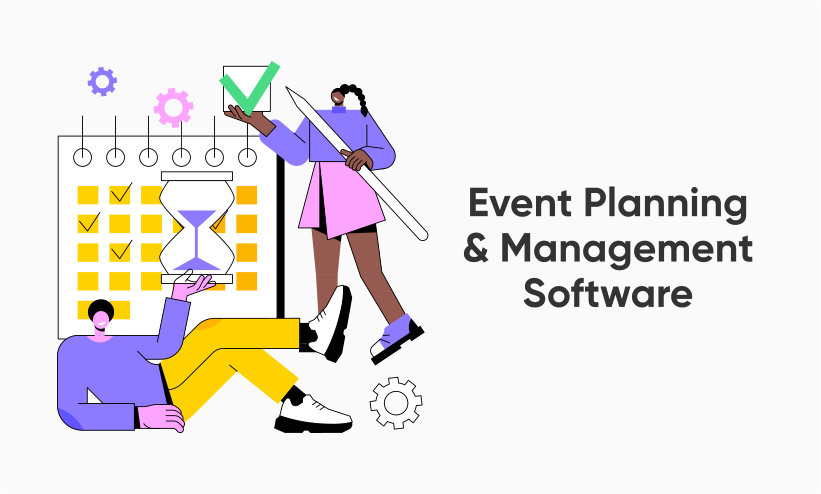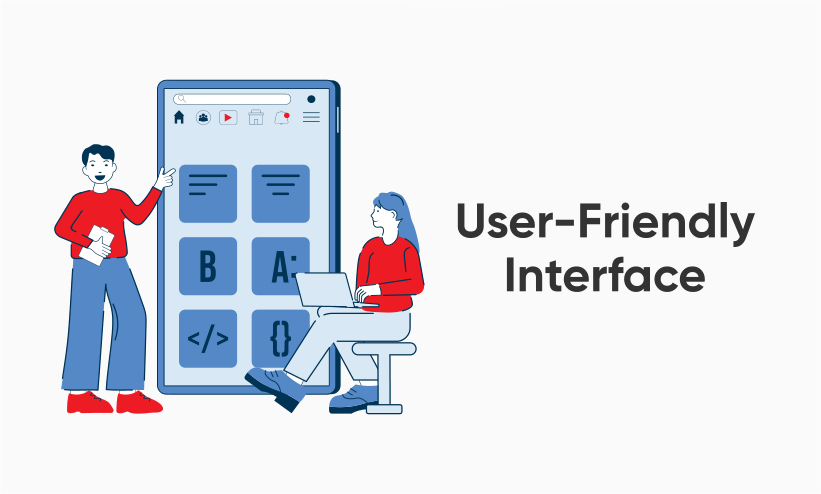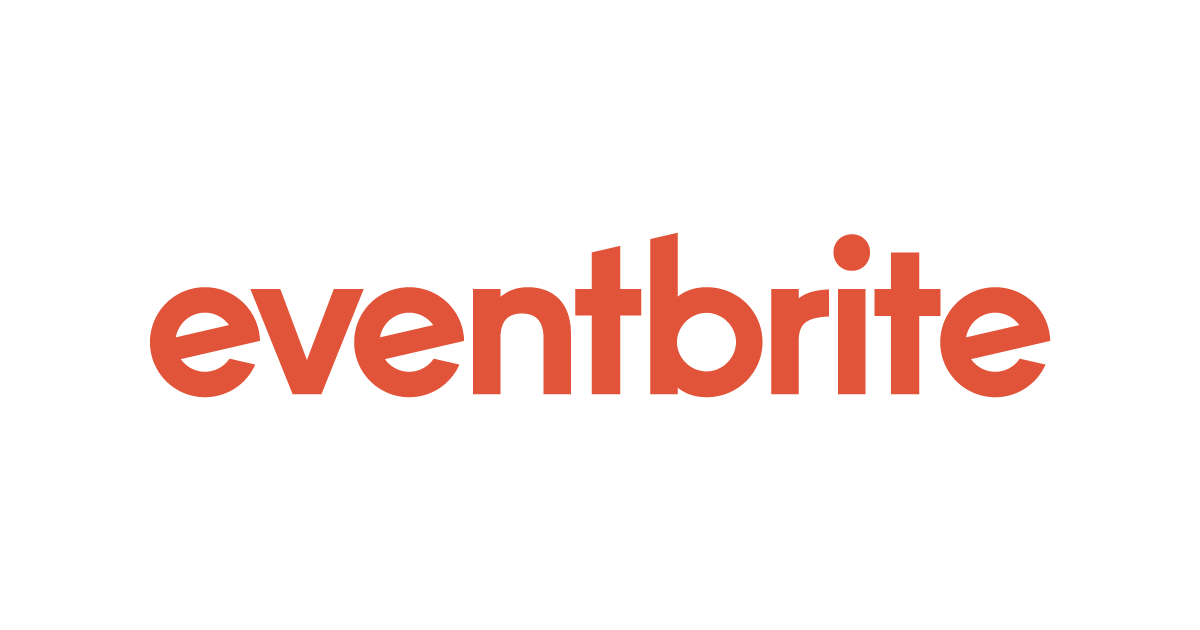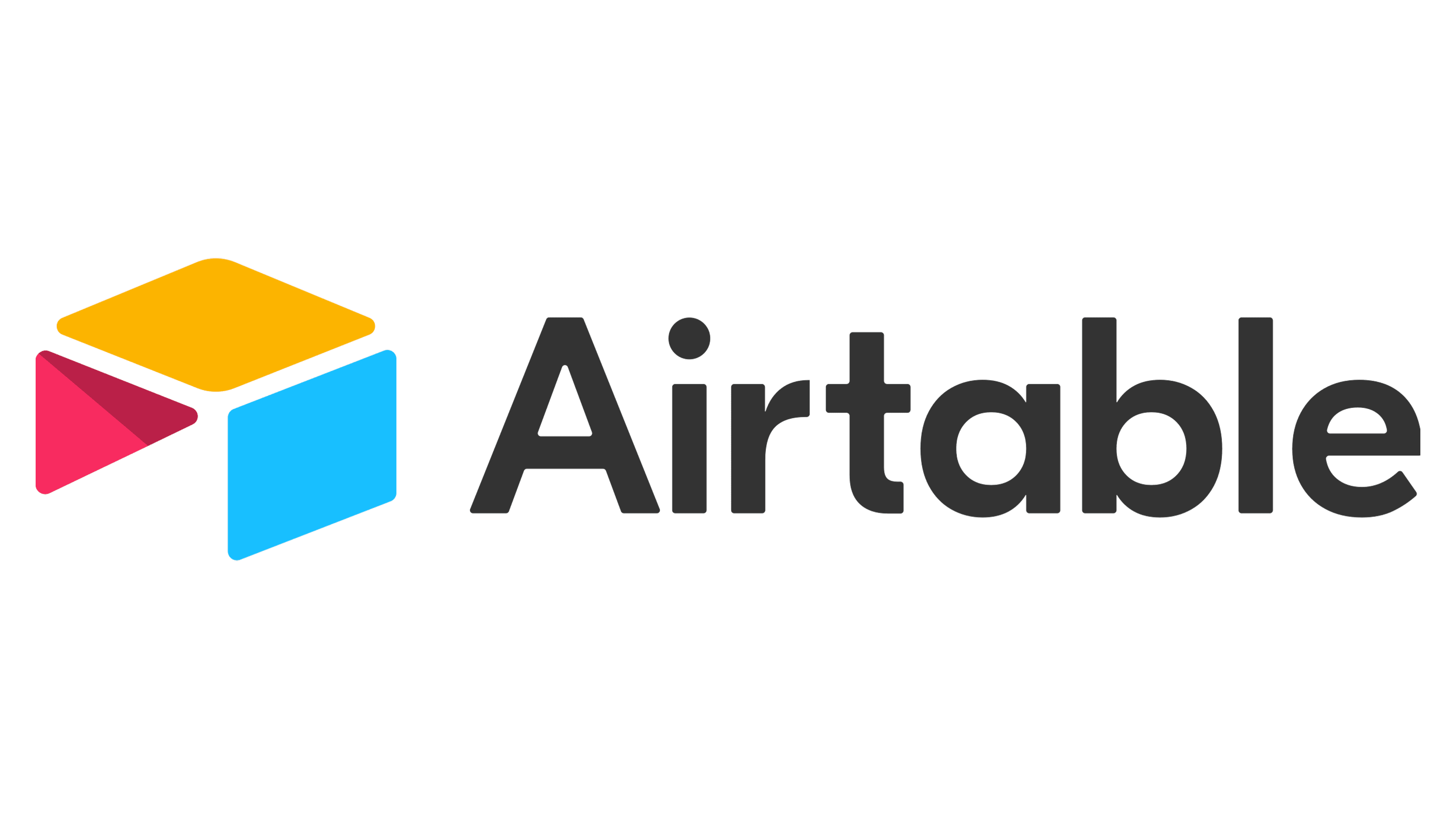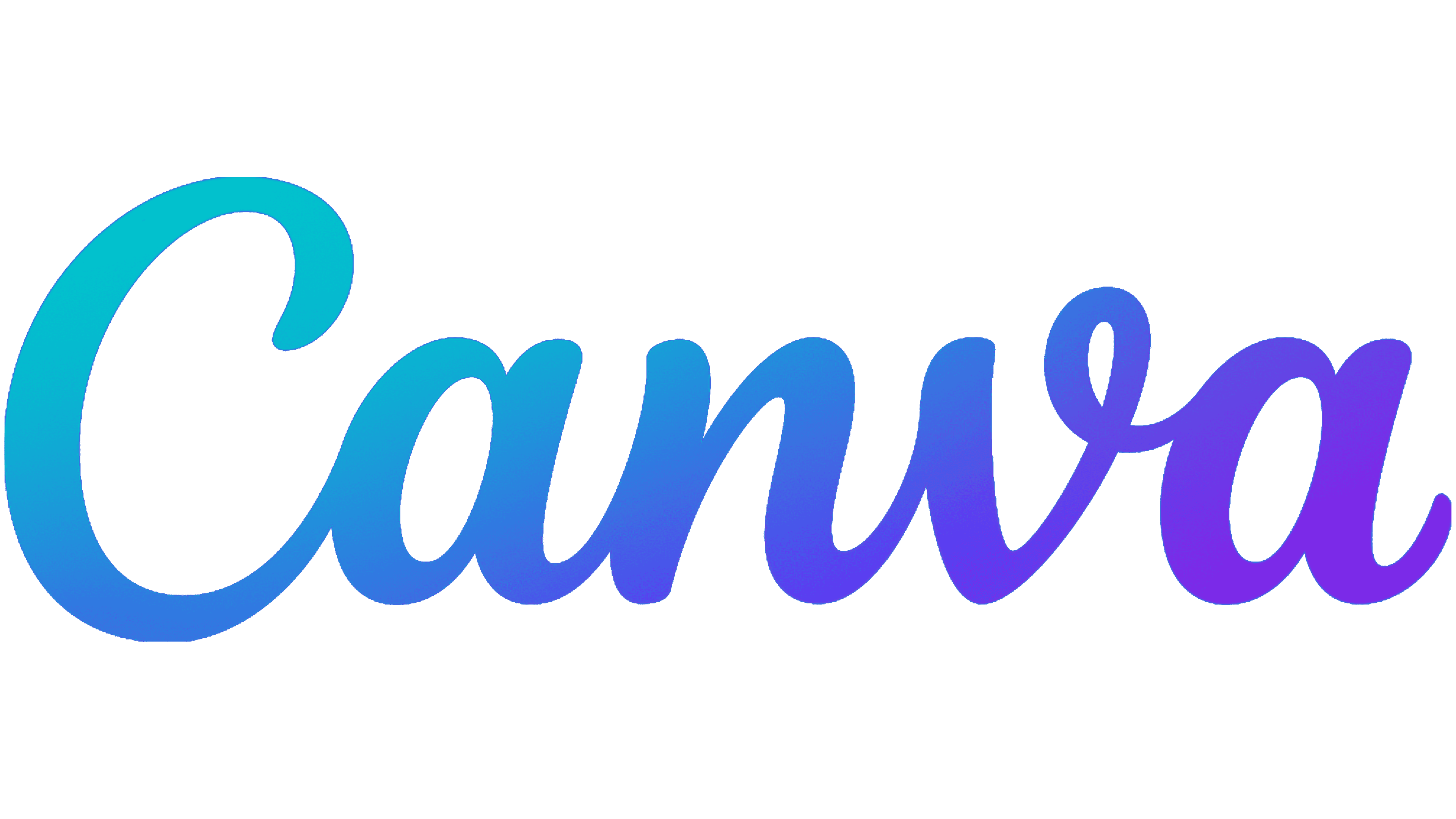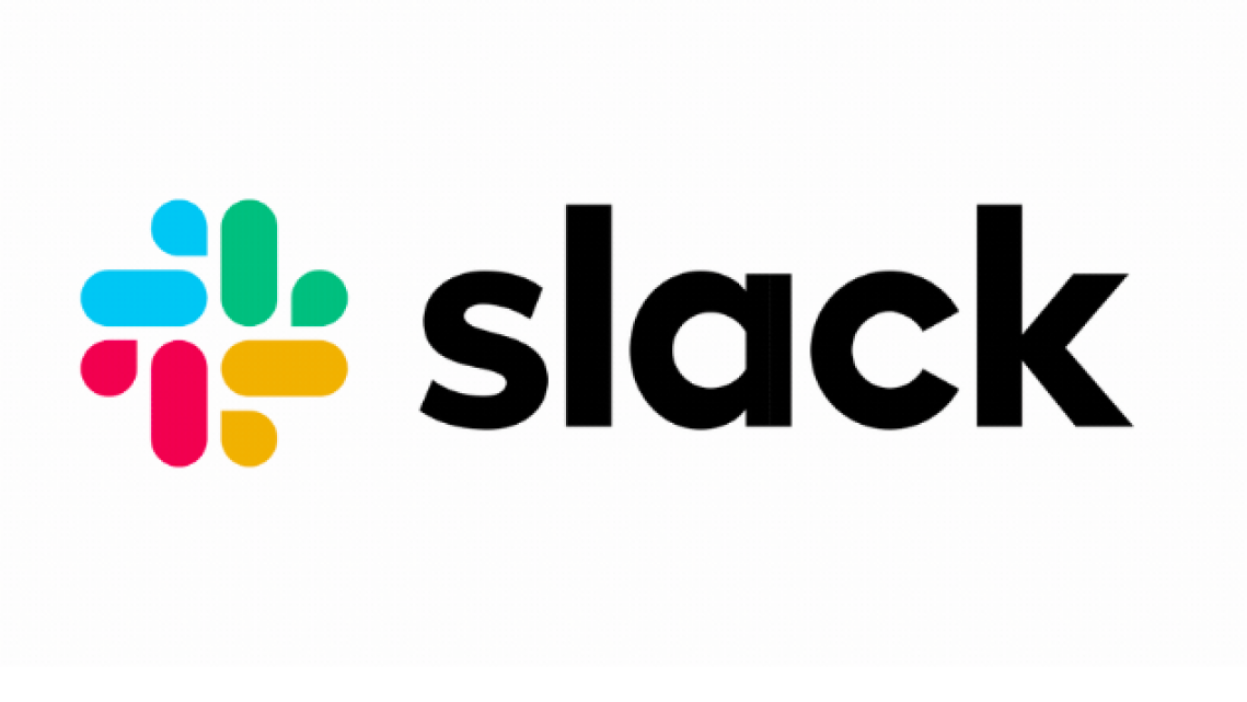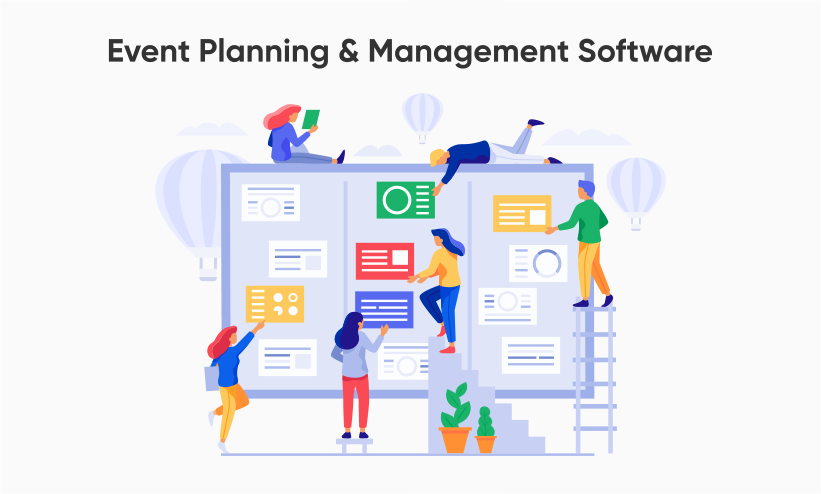Event Planning & Management Software
Event planning and management software has become a cornerstone in organising successful events, ranging from intimate gatherings to grand corporate functions. In a world where efficiency and precision are paramount, these tools offer an array of features to streamline the planning process, ensuring every detail is meticulously managed. With budget constraints being a common challenge, the focus has shifted towards free software options that offer robust functionality without the hefty price tag. This blog aims to explore the world of free event planning and management software, offering insights into their capabilities and how they can revolutionise event management in 2024.
What is Event Planning and Management Software?
Event planning and management software is a specialised tool designed to assist event planners and organisations in orchestrating events seamlessly. These digital solutions encompass a range of functionalities, from attendee registration to event scheduling, venue selection, and beyond. The software simplifies complex processes, enabling organisers to handle multiple tasks within a single platform. The benefits are multifold – enhanced efficiency, improved communication, reduced room for error, and invaluable data insights, all contributing to the successful execution of events.
Key Features to Look for in Free Event Planning Software
User-Friendly Interface
A user-friendly interface is vital in event planning software. It ensures that even those with limited technical expertise can navigate the tool efficiently, making event planning more inclusive and less time-consuming. An intuitive design minimises training requirements and accelerates the planning process.
Customisation Options
Every event is unique, and customisation options in software allow planners to tailor their events to specific needs and preferences. Features like customisable registration forms, event themes, and agenda settings enable a personal touch, enhancing the attendee experience.
Integration Capabilities
Integration with other tools like email platforms, CRM systems, and social media enhances the software’s functionality. It allows for seamless data transfer and better coordination across different aspects of event management, from marketing to attendee tracking.
Real-Time Collaboration Tools
Event planning is often a collaborative effort. Real-time collaboration tools within the software facilitate efficient teamwork, allowing multiple users to work simultaneously, share updates, and make decisions quickly, irrespective of their physical location.
Reporting and Analytics
Data analysis plays a crucial role in event planning. Reporting and analytics features help organisers track key metrics like attendee engagement, budget adherence, and overall event performance, providing valuable insights for future events.
7 Best Free Event Planning & Management Software of 2024
Each software listed has been chosen based on its usability, feature set, and how well it caters to the diverse needs of event planners.
1. Asana
Key Features:
Task assignments, project timelines, calendar views, integration with various communication tools.
Pros and Cons:
Pros: Highly versatile, intuitive interface, great for team collaboration.
Cons: Can be overwhelming for beginners, with limited features in the free version.
Best For:
Small to medium-sized events, teams requiring strong collaboration.
2. Trello
Key Features:
Board and card system for task management, easy drag-and-drop interface, integration with apps like Slack and Dropbox.
Pros and Cons:
Pros: User-friendly, flexible setup, ideal for visual project management.
Cons: Limited reporting tools, can become cluttered with large projects.
Best For:
Visual organisers, smaller events, and personal projects.
3. Eventbrite
Key Features:
Ticketing and registration, event promotion tools, analytics and reporting, mobile event app.
Pros and Cons:
Pros: Excellent for ticketed events, easy to set up and use, strong community features.
Cons: Fee charged on ticket sales, limited customisation.
Best For:
Public events, especially those requiring ticket sales like workshops and conferences.
4. Monday.com
Key Features:
Customisable workflows, time tracking, automation of tasks, multiple view options (Kanban, calendar, timeline).
Pros and Cons:
Pros: Highly customisable, integrates well with other tools, great for tracking multiple event aspects.
Cons: Can be expensive beyond the basic plan, steep learning curve.
Best For:
Complex events requiring detailed project management, and larger teams.
5. Airtable
Key Features:
Spreadsheet-database hybrid, rich field types, linking records between tables, template gallery.
Pros and Cons:
Pros: Highly flexible and customisable, great for data organisation.
Cons: Requires some time to fully understand and utilise its potential.
Best For:
Data-driven event planning, medium to large-scale events.
6. Canva
Key Features:
A design tool for creating event-related graphics, templates for invitations and promotional materials, and collaboration features.
Pros and Cons:
Pros: User-friendly design tools, and extensive template library.
Cons: Limited design features in the free version.
Best For:
Event promotion and marketing, creating visual content for events.
7. Slack
Key Features:
Communication platform, integration with various project management tools, file sharing, searchable message history.
Pros and Cons:
Pros: Excellent for team communication, integrates with many tools.
Cons: Can be distracting due to constant notifications, and the learning curve for new users.
Best For:
Event teams requiring constant communication and integration with other project management tools.
Tips on Maximising the Use of Free Event Planning Software
Leveraging Built-in Templates
Maximise efficiency by utilising built-in templates for common event types, which can be customised to fit specific needs.
Integrating With Other Tools
Enhance the software’s capabilities by integrating with other tools like social media for marketing and CRM for attendee management.
Regularly Updating Event Details
Keep all event information up to date within the software to ensure accuracy and consistency across all planning stages and communications.
Potential Limitations of Free Software
While free event planning software offers numerous benefits, it’s also crucial to be aware of potential limitations. These can include fewer features compared to paid versions, limited customer support, and occasional ads or requests for upgrades.
Conclusion
Choosing the right event planning software is pivotal in orchestrating successful events. While this guide focuses on free options, it underscores the importance of assessing each tool’s features against your specific event needs. We encourage event planners to explore these options and discover how they can elevate their event planning experience.
As you conclude your quest for the best free event planning tools, envision a future of unparalleled success with Ubique Digital Solutions. Elevate your events and business outcomes by following us for valuable insights. Explore partnership opportunities and let’s embark on a journey to transform your events into extraordinary experiences. Reach out to us today.
FAQs
Q: Is Free Event Planning Software Reliable?
Most free software options are reliable for basic to medium-level event planning needs. However, for more complex events, additional features from paid versions might be necessary.
Q: Can I Plan Large Events with Free Software?
Free software can be used for large events, but it might require supplementing with additional tools or manual processes for complex tasks.
Q: How Does Free Software Compare to Paid Versions?
Free software generally offers essential features suitable for most events, but paid versions provide advanced features, better customisation, and more comprehensive support.
Q: Are There Any Hidden Costs in Free Event Planning Software?
Some free software might have hidden costs like fees for advanced features, additional users, or tech support. It’s important to thoroughly review the terms before using the software.


